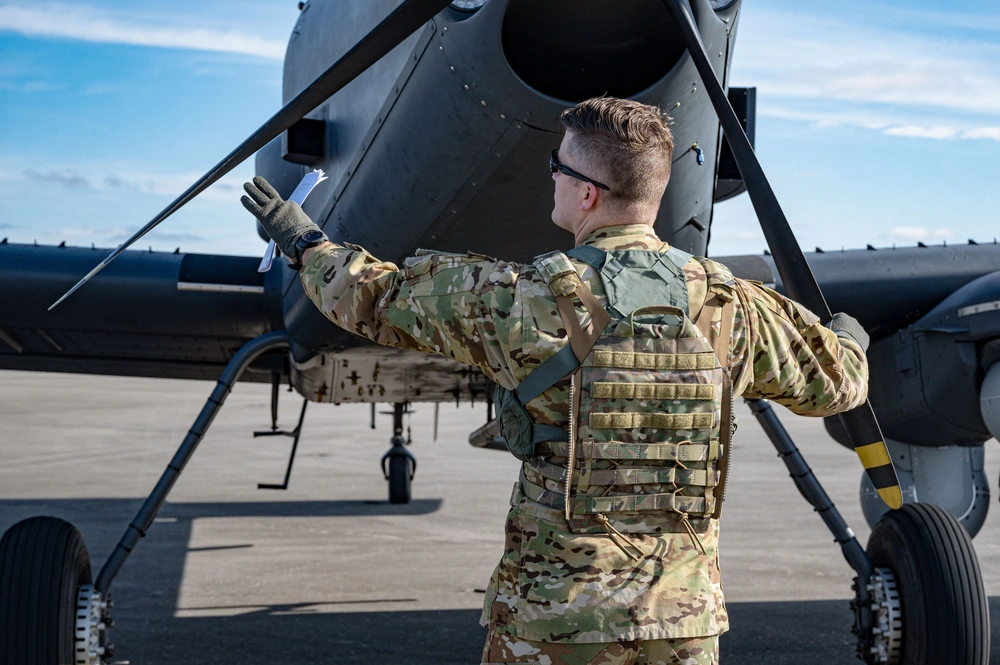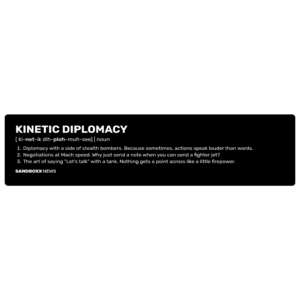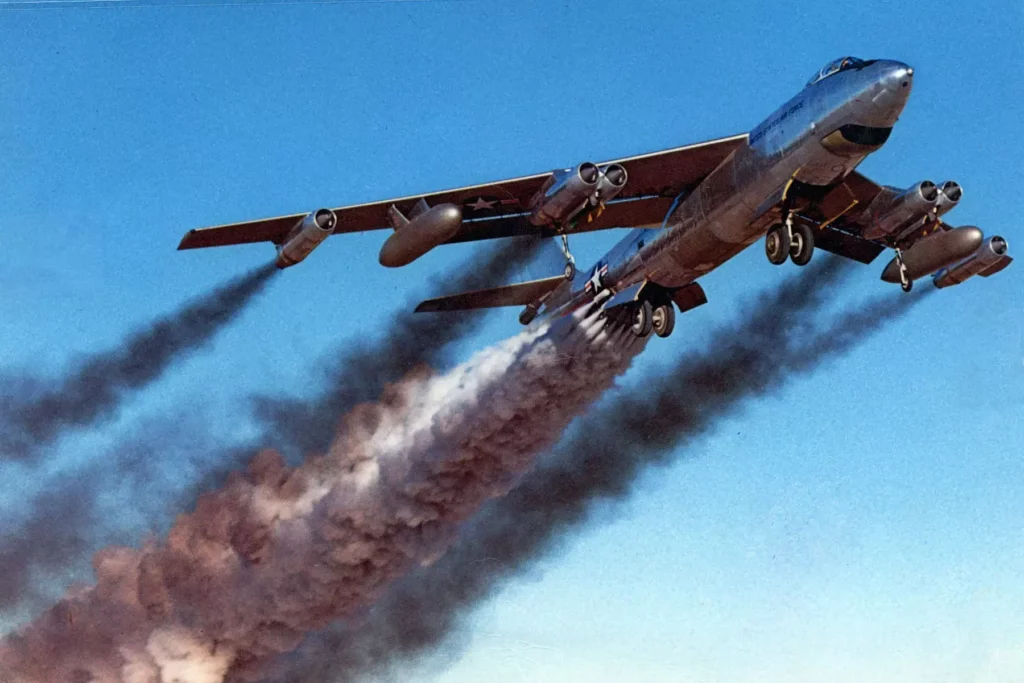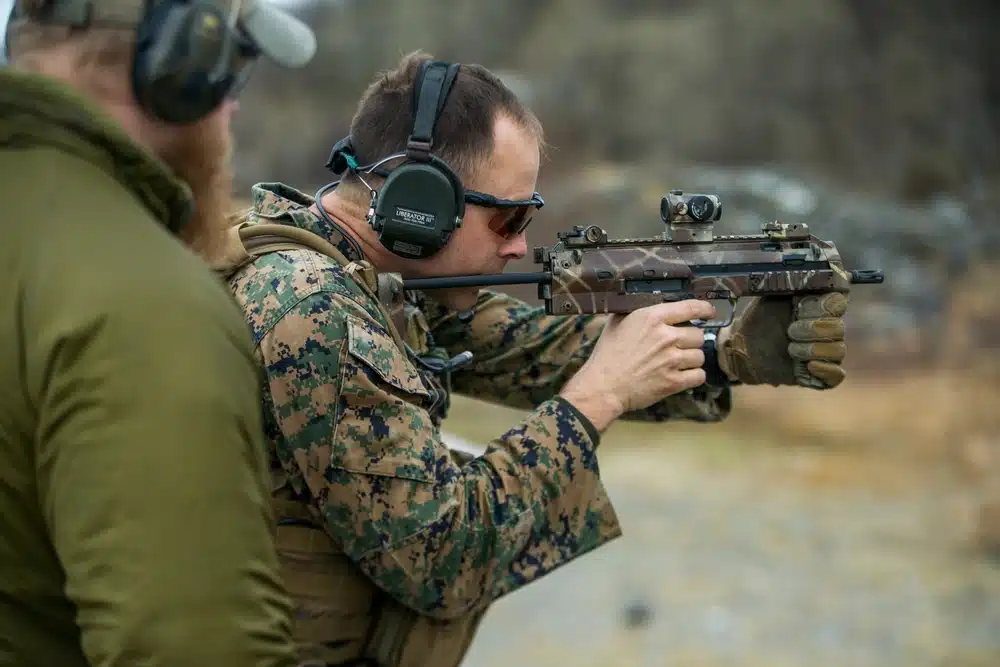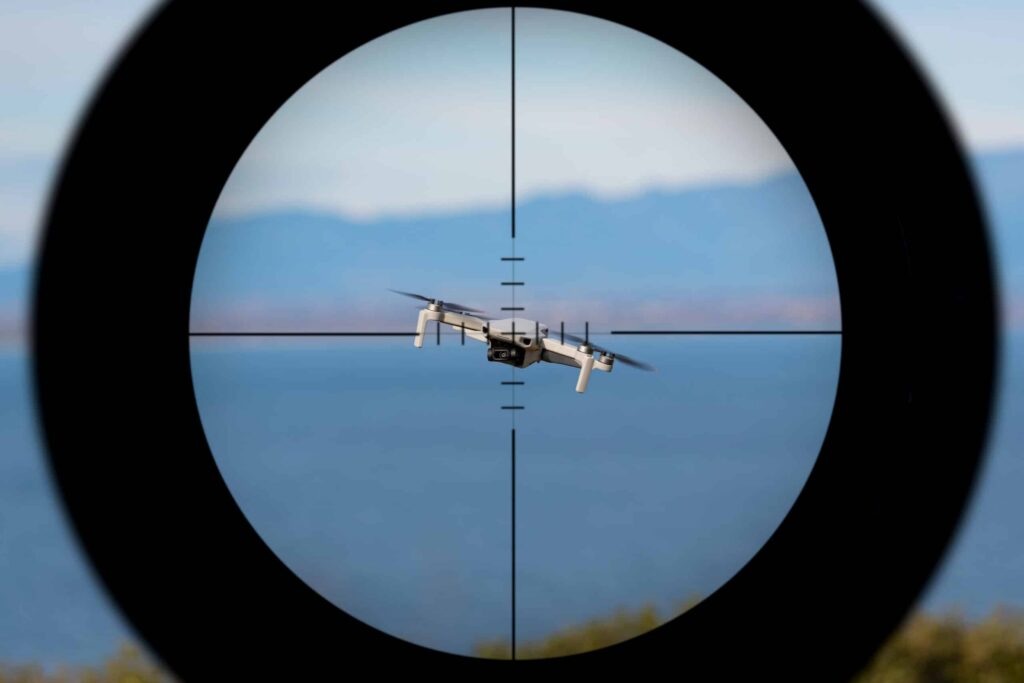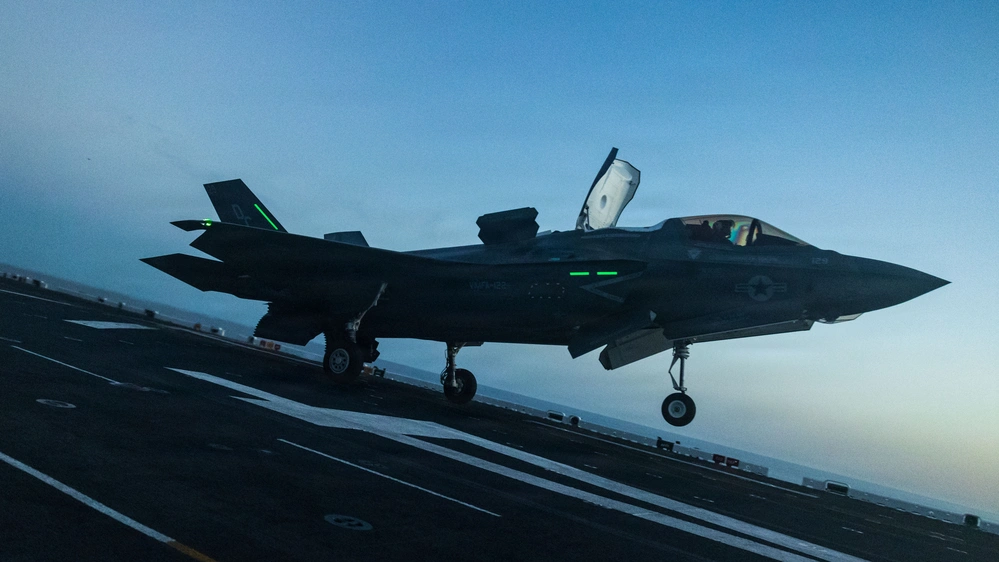The U.S. Special Operations Command (SOCOM) recently received its newest attack plane, the OA-1K Skyraider II. Although it looks like something ripped right out of World War II, it will increase the capabilities of America’s elite units.
While most people tend to think American troops have fighter jets and drones circling overhead at all times, that is not the case, especially in remote areas where SOCOM unit’s often operate.
For example, American Green Berets often operate far-removed from conventional support, as they find themselves fully embedded with foreign partners and allies, training and often fighting alongside them. But because these operations are so far removed from the rest of the U.S. military, calling in for air support is not always a feasible option.
Special operators like the Navy SEALs, Green Berets, and Marine Raiders operate in far-removed locations on a regular basis. So, SOCOM’s decided to get them some air support of their own.
And they found just what they were looking for in the L3Harris/Air Tractor AT-802U, which has been redesignated by the U.S. Special Operations Command as the OA-1K Skyraider II.
The OA-1K Skyraider II is designed for short-take-offs from austere, dirt airstrips with next to no maintenance support. It only requires a very small crew and has a modular design that makes it possible to add special equipment to support different types of covert operations.
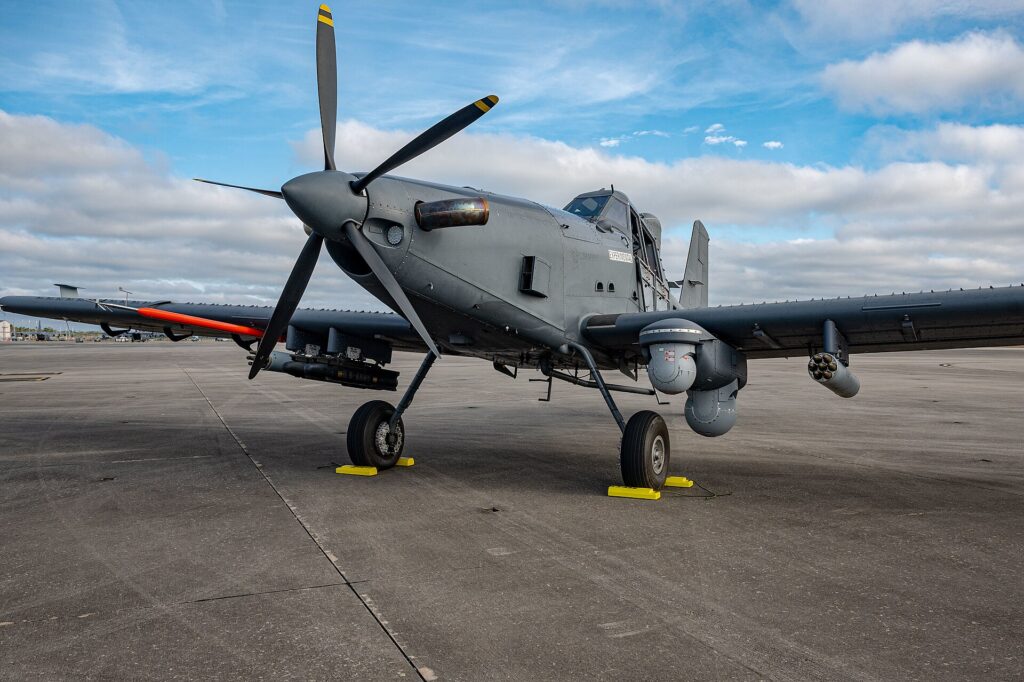
Meant to operate in uncontested airspace as armed overwatch, the Skyraider II is powered by a 1,600 horsepower Pratt & Whitney turboprop that offers it the largest payload capacity of any single-engine turboprop aircraft on the world, with the ability to haul as much as 6,000 pounds worth of ordnance and gear across eight hardpoints. This makes it possible to carry a single pod containing an electro-optical and infrared sensor along with a laser designator for intelligence, surveillance, and reconnaissance duties or for targeting. The onboard avionics then fuse these feeds into a single battlefield view that’s said to be even more capable than a traditional FLIR system.
The aircraft is capable of carrying .50 caliber machine guns or 20mm cannon as well as two LAU-131 seven-round rocket pods that can be equipped with the AGR-20 FALCO laser-guided 70mm rockets, Hellfire missiles, laser-guided bombs, and much more depending on the mission.
To counter surface-to-air missiles or manpads, the aircraft carries the same AN/ALE-47 countermeasure system capable of deploying flares and chaff that you might find on a fighter like the Super Hornet. The Skyraider II also comes with a datalink that allows it to serve as a vital communications link between troops on the ground and headquarters.
Related: The ultimate test of Special Forces’ nerves
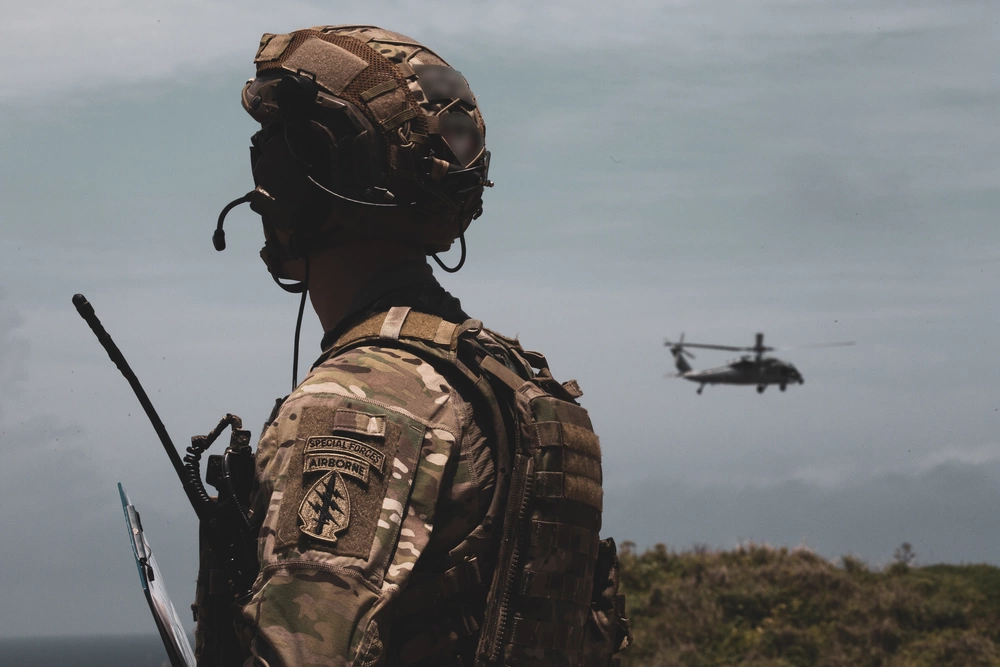
Put simply, this small aircraft can deploy alongside small special operations units and launched and recovered from hasty airstrips like cleared-off roads or fields near the front lines. From there, it can hang out overhead, providing advanced ISR capabilities for as long as six hours, waiting for trouble to rear it’s head… and then it can wipe that trouble out with a variety of onboard weapons before landing in a nearby soccer field for after-battle drinks.
SOCOM is paying $3 billion for the production and support of 75 of these prop-driven hunters, which shakes out to a unit price of around $40 million that will include classified SOCOM additions. Although it will cost about half the price of a new F-35, its operating cost is said to be in the low thousands of dollars per hour, making the Skyraider II America’s cheapest tactical aircraft to fly.
And for the special operators out there who are conducting covert operations thousands of miles from any meaningful support, the Skyraider II must feel like a real bargain.
Feature Image: An OA-1K Skyraider II pilot conducts a walkaround on the flightline at Hurlburt Field, Florida, Jan. 28, 2025. The OA-1K Skyraider II will deliver close air support, precision strike, and armed intelligence, surveillance and reconnaissance capabilities. (U.S. Air Force photo by Staff Sgt. Natalie Fiorilli)
Read more from Sandboxx News
- The Marine’s new air defense system is a game changer
- Tour Pearl Harbor’s outdoor fighter exhibits with Sandboxx’s resident AirPower nerd Alex Hollings
- Why this new Marine Corps unit is training with autonomous narco-subs
- NATO can’t ignore the Russian military’s faster, more dangerous kill chain
- F-16s in Ukraine are putting in the work, according to Ukrainian pilot

